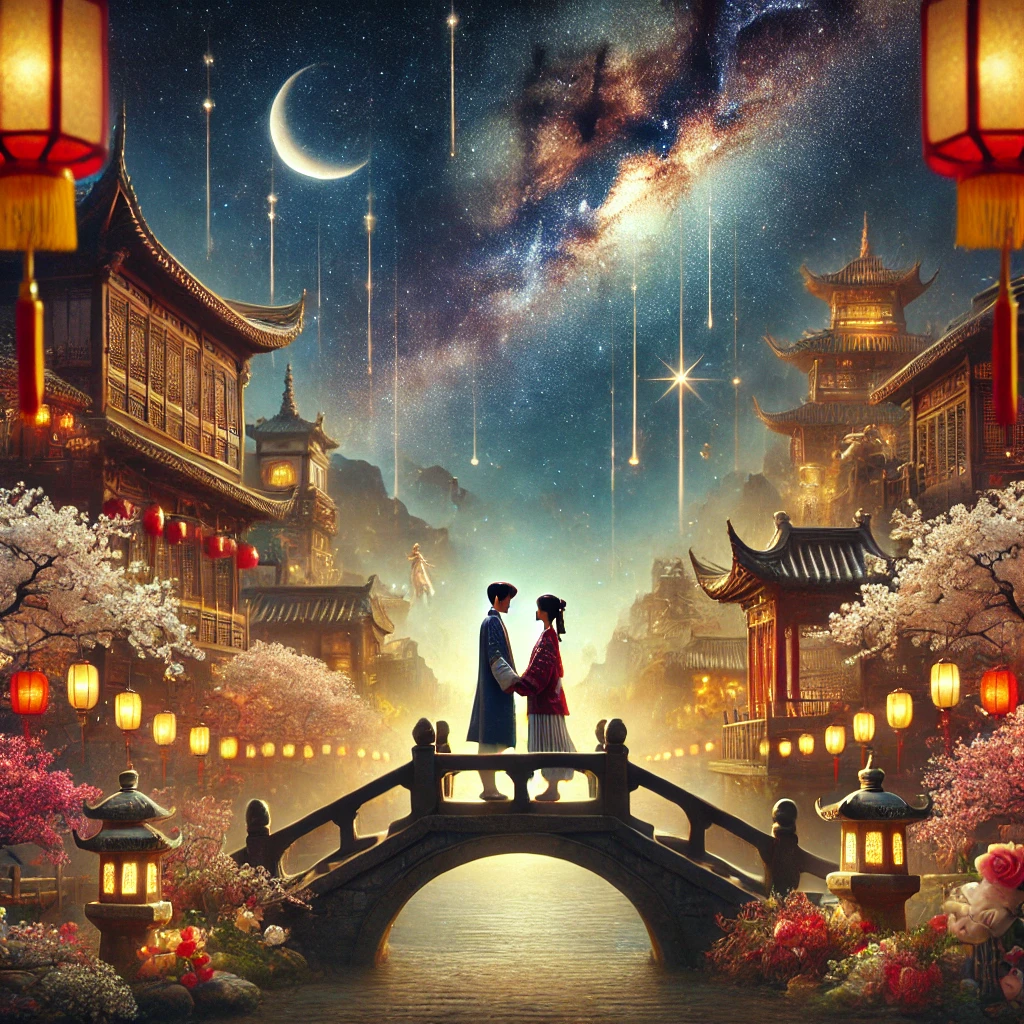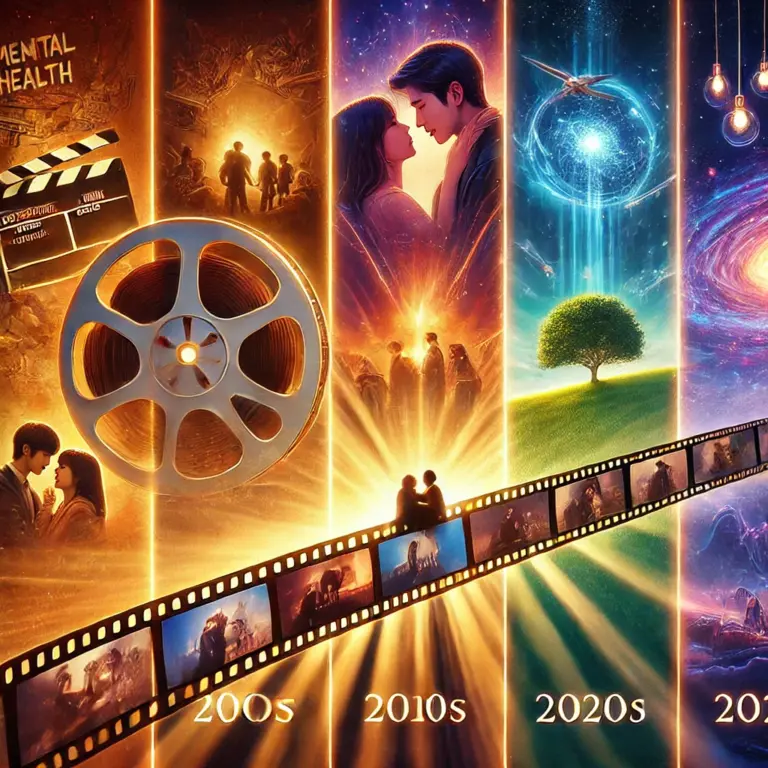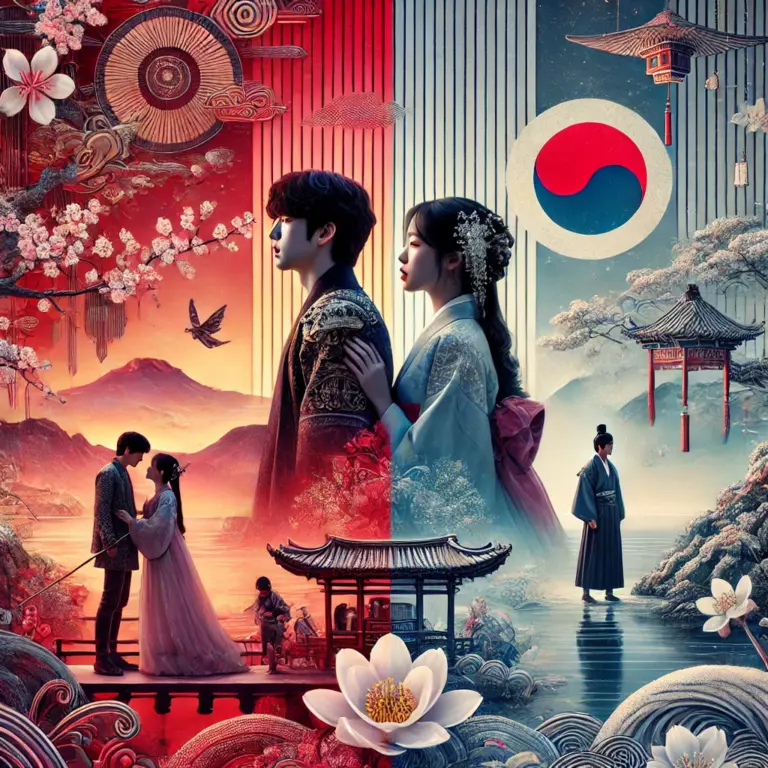Love in dramas: a journey through cultures and emotions
Anúncios
When it comes to exploring the complexity of love, few genres do it as poignantly and captivatingly as doramas. These Asian dramas, spanning Korean (K-dramas), Japanese (J-dramas), Chinese (C-dramas), and Thai (Lakorns), offer viewers a kaleidoscope of emotions, portraying love in its many forms—from heart-wrenching epic romances to the simple, heartwarming bonds of everyday life.
Through their storytelling, doramas not only reflect cultural values but also reinterpret traditional concepts of love to resonate with contemporary audiences.

Clichés That Steal Our Hearts
Doramas are well-known for their reliance on familiar romantic tropes, which never fail to tug at our heartstrings. Among the most iconic are the infamous “love triangles” and the classic “friends-to-lovers” storyline.
- Love Triangles: Few things are as thrilling (and frustrating) as watching a love triangle unfold in a dorama. Whether it’s the wealthy, aloof chaebol heir versus the kind-hearted childhood friend (Boys Over Flowers, anyone?) or two equally compelling love interests vying for the protagonist’s heart, these scenarios keep viewers glued to their screens, rooting for their favorite pairing. The emotional tension and bittersweet moments highlight the choices and sacrifices that love often demands.
- Friends-to-Lovers: The transition from friendship to romance is another trope that doramas handle with finesse. These stories emphasize trust, shared memories, and the slow realization of deeper feelings. Series like Reply 1988 or Weightlifting Fairy Kim Bok Joo beautifully capture how love can bloom from the most ordinary of relationships, reminding us of the value of companionship as the foundation of romance.
The Significance of Pure and Platonic Love
In a world dominated by fast-paced narratives and explicit romantic depictions, doramas stand out for their portrayal of love that is often pure, slow-burning, and deeply emotional. This approach allows for a profound connection between characters—and viewers.
For instance, the focus on small gestures, such as holding hands, a lingering glance, or even a heartfelt confession, carries a weight that modern Western storytelling sometimes overlooks. In dramas like Goblin or Crash Landing on You, love is not just about physical attraction but about emotional intimacy, trust, and shared growth. This restrained portrayal resonates with audiences, proving that love doesn’t always need grand gestures to feel monumental.
Cultural Differences in the Depiction of Love
While doramas share similar themes, the way love is portrayed varies significantly across cultures, offering a fascinating insight into societal values and expectations.
- Korean Dramas (K-Dramas): Known for their polished production and intense emotional depth, K-dramas often explore the idea of “fated love.” Themes like societal class divides (The Heirs) or cross-border romances (Crash Landing on You) add layers of drama, emphasizing the resilience of love in the face of obstacles.
- Japanese Dramas (J-Dramas): J-dramas tend to focus on understated and introspective storytelling. They often explore quiet, unspoken feelings, making the viewer reflect on the subtleties of love. Series like Orange or Love Lasts Forever highlight self-sacrifice and emotional growth as key aspects of romantic relationships.
- Chinese Dramas (C-Dramas): C-dramas, particularly historical romances like Eternal Love or The Untamed, weave grand, sweeping tales of love that span lifetimes. These stories often intertwine romance with themes of destiny and loyalty, reflecting the importance of cultural heritage and familial bonds.
- Thai Dramas (Lakorns): Lakorns bring a distinct flair with their dramatic and often bold portrayal of love. Passion, jealousy, and intense chemistry are common, making series like Love Destiny stand out for their unapologetically emotional storytelling. Thai dramas also excel at blending romance with comedy, making their love stories both entertaining and heartfelt.
Love as a Reflection of Societal Change
Over the years, doramas have evolved to reflect shifting cultural norms and societal expectations. While traditional depictions of love often emphasized family approval and societal duties, modern dramas have begun to challenge these notions, presenting more progressive relationships.
For example, series like Something in the Rain tackle age-gap romances, while Because This Is My First Life explores unconventional marriage dynamics. These stories resonate with younger audiences who are navigating a world where love is increasingly about individuality and mutual respect, rather than conforming to societal norms.
Conclusion: Why We Keep Falling in Love With Doramas
Doramas continue to captivate audiences because they present love as multifaceted and universal, yet deeply rooted in cultural nuances. Their stories remind us that love is not just about passion but about growth, sacrifice, and connection. Whether it’s a grand, fateful romance or a quiet, everyday love, doramas offer a window into the human heart—one that transcends cultural boundaries and leaves viewers yearning for more.
So, whether you’re a seasoned dorama fan or new to the genre, there’s always a love story waiting to steal your heart. Which dorama trope or love story resonates most with you? Let us know in the comments below!



